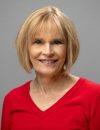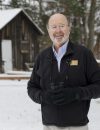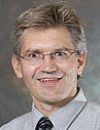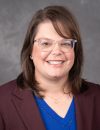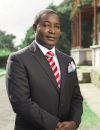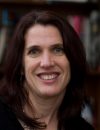The UW Board of Regents unanimously passed the mask mandate Thursday, a few weeks after UW System guidelines recommended masks but stopped short of requiring them.
UW In The News
-
Science elicits hope in Americans – its positive brand doesn’t need to be partisan
Written by Todd Newman, Assistant Professor of Life Sciences Communication, University of Wisconsin-Madison
-
A lesson from the coronavirus that could save us all – the community can save the community
Noted: William R. Hartman, MD, PhD, Department of Anesthesiology, is principal investigator for the UW COVID-19 Convalescent Plasma Program at the University of Wisconsin School of Medicine and Public Health in Madison.
-
As Summer Takes Hold, So Do the Jumping Worms
At the University of Wisconsin-Madison Arboretum, study of Asian jumping worms began after they were discovered on the grounds in 2013. “They may have a cascading, behind-the-scenes impact that might not happen tomorrow, but that will eventually affect other organisms at a higher trophic level,” said Bradley M. Herrick, a plant ecologist and the research program manager at the arboretum.
-
COVID-19 plasma trial at UW-Madison shows treatment helped 94% of severely ill patients avoid ICU or ventilation
Patients with severe or life-threatening COVID-19 have fared well so far in two clinical trials underway at the University of Wisconsin-Madison, according to preliminary results.
The university also launched three new COVID-19 clinical trials and began considering offers to host another nine. Since the coronavirus clinical trials began, 80% of all UW Health patients with COVID-19 have been enrolled in one.
-
Why Black Americans face more retirement challenges
Center for Financial Security Director & University of Wisconsin—Madison Professor J. Michael Collins joins Yahoo Finance’s Zack Guzman to discuss the inequalities in retirement security for communities of color.
-
What does it mean to declare racism a public health crisis?
But can a declaration really make a difference? Just pushing it through the process can have an impact, said Paula Tran Inzeo, a director at University of Wisconsin’s Public Health Institute.
-
The latest on smoking cessation: 8 things physicians should know
“There’ve been more than 20 studies, which have looked at smoking status and COVID-19 complications,” said AMA member Michael Fiore, MD, MPH, MBA, Hilldale Professor of Medicine at the University of Wisconsin and director of the Center for Tobacco Research and Intervention at the University of Wisconsin School of Medicine and Public Health in Madison. “Whether you measure the outcomes as death or using a severity index, like going to the ICU or being intubated, in more than 80% of those studies, smoking resulted in a statistically significant increase of adverse outcomes.”
-
Path to White House Runs Through America’s ‘Rust Belt’
“We’re losing jobs because we’re moving towards automation,” said Stephen Deller, a professor and community economic development specialist at the University of Wisconsin-Madison.
-
Patients aren’t being told about the AI systems advising their care
But there is no clear line that neatly separates medical research from hospital operations or quality control, said Pilar Ossorio, a professor of law and bioethics at the University of Wisconsin-Madison. And researchers and bioethicists often disagree on what constitutes one or the other.
-
How to use eye makeup safely during coronavirus
In addition to possibly contracting the virus from contaminated fingers or brushes, a makeup user also risks exposure to the coronavirus from the products themselves, especially if those products are shared with others or are used outside of the home, said Sarah M. Nehls, an ophthalmologist at the University of Wisconsin at Madison. “The makeup could be potentially contaminated,” she said. “[The coronavirus] has been found on the ocular surface. This is why conjunctivitis [pinkeye] can be an initial symptom of infection.”
-
Coronavirus’s Spread Broadens Across U.S.
“We just didn’t have that endurance to see that to the point where cases are now sporadic,” said Ajay Sethi, an associate professor of population health sciences at the University of Wisconsin-Madison focused on epidemiology and infectious diseases.
-
The ‘unwise, disruptive policy’ of shutting out international students
The Department of Homeland Security announced Monday that all of the roughly 1 million international students currently enrolled in the U.S. must attend at least one in-person class this fall or be denied visas. We hear student reaction, and Jeffrey Brown talks to Rebecca Blank of University of Wisconsin-Madison.
-
Masks mandatory inside all UW campus buildings this fall
-
In 1918, the University of Wisconsin’s expertise and the ‘Wisconsin Idea’ proved crucial in fighting a pandemic
As colleges and universities announce plans to invite students back to campus this fall, American higher education is, according to the New York Times, “about to embark on a highly uncertain experiment.”
-
UW-Madison announces initiatives to address racial inequities on campus
UW-Madison Chancellor Rebecca Blank addressed racial inequities on campus in a blog post Wednesday.She shared a number of additional commitments the university is making to ensure success of all students. She also said these commitments will require financial support, which may mean cutting other programs.
-
Which mask is best? UW engineering professor studies how droplets escape from face coverings
University of Wisconsin-Madison engineer Scott Sanders usually spends his time figuring out how gases and particles behave in combustion engines.
But Sanders has turned his expertise to determining how a different type of particle, one that has sickened millions around the world, moves from human mouths covered with masks.
-
‘Desperation Science’ Slows the Hunt for Coronavirus Drugs
Alta Charo, a University of Wisconsin lawyer and bioethicist, recalled the clamor in the 1990s to get insurers to cover bone marrow transplants for breast cancer until a solid study showed they “simply made people more miserable and sicker” without improving survival.
-
Coronavirus forces scientists to change while searching for vaccine
Pilar Ossorio, a professor of law and bioethics at the University of Wisconsin-Madison, worries there is so much pressure to produce positive results that conditions are ripe for cutting corners. She noted that in an emergency when people are suffering, there can be resistance to having control groups that don’t get an experimental treatment in a study.
-
UW professor’s research shows which masks best contain COVID droplets
In a cool video posted online this week, UW–Madison mechanical engineering professor Scott Sanders uses a mannequin to illustrate how droplets escape or stay contained inside a variety of masks now being worn.
-
How can I get my child to wear a mask? If I’m sick with COVID, how long do I need to quarantine? Experts answer your questions
Quoted: “A mask that is not covering the nose will not stop a person infected with SARS-CoV-2 from contaminating the air in front of them when they exhale. Similarly, a mask covering only the mouth will fail to prevent an uninfected person from inhaling contaminated air. Since it does not take a lot of virus particles to cause infection, a partially worn mask may not be effective enough. This reminds me of when I see people wearing a bicycle helmet without buckling the strap or wearing it so loosely that it doesn’t cover the front of their head. The intention might be there, but there is a higher risk of head injury following an accident if the helmet is unable to do what it is designed to do.”
— Ajay Sethi, PhD, MHS, associate professor, Department of Population Health Sciences at the University of Wisconsin-Madison.
-
Some masks better than others in preventing COVID-19, UW video shows
The homemade face covering that best contains respiratory droplets like those from COVID-19 is a neck-gaiter-style mask combining a nose piece with an elastic cord wearers can toggle to snug the mask to their face, according to a UW-Madison engineer.
-
Six months of coronavirus: the mysteries scientists are still racing to solve
With government and industry pumping billions into vaccine development, testing and manufacturing, a vaccine could be available in record time, say scientists — it just might not be completely effective. “We might have vaccines in the clinic that are useful in people within 12 or 18 months,” Dave O’Connor, a virologist at the University of Wisconsin–Madison, told Nature in May. “But we’re going to need to improve on them.”
-
Hospital ratings often depend more on nice rooms than on health care
In a 2014 study of 155 physicians by the University of Wisconsin-Madison’s School of Medicine and Public Health, close to half said that pressure to please patients led to inappropriate care including unnecessary tests and procedures, hospital admissions, and opioid or antibiotic prescriptions.
-
Are High Water Levels a Result of Climate Change?
While many people are scrambling to combat flooding and damage to infrastructure, climate scientists are working to find out what has been causing the latest rise in lake levels. According to Jack Williams, a UW-Madison geography professor and climate-change expert, it’s the billion-dollar question.“We can’t yet definitively say,” Williams said. “What we know is that we are seeing increasing temperatures and variability of rainfall, which are both known to be caused by climate change.”
-
21 Lessons From America’s Worst Moments
TIME asked 21 historians, including Professor of Community and Environmental Sociology Nan Estad, to weigh in with their picks for “worst moments” that hold a lesson—and what they think those experiences can teach us.
-
Laura Albert: Coronavirus reopening risks – Here’s a plan to make us safer
“Opening the economy is not the problem,” writes Laura Albert, Industrial and Systems Engineering professor. “Opening the economy without a plan to control the risk is the problem.”
-
Cloud of confusion – Conflicting covid-19 messages add to struggle to contain virus
Health scares always spawn scurrilous stories. But with covid-19, “there’s lots of opportunity for misinformation,” said Dhavan Shah, a professor of mass communication at the University of Wisconsin-Madison.
-
Court reinstates Wisconsin voting restrictions in victory for Republicans
The decision could lead to severe efforts to change electoral rules for political gain, said Barry Burden, director of the Elections Research Center at the University of Wisconsin-Madison.
-
Anger Management for an Angry Time
If you decide to use your anger, choose something you can control. “Anger is a very energizing emotion—think of it as the opposite of procrastination,” says Evan Polman, an associate professor in the Wisconsin School of Business at the University of Wisconsin-Madison. Remember that anger can give you courage. Use it to ask for a raise, get involved in a cause you care about or get up the nerve to have that difficult conversation you’ve been putting off.
-
How Slavery Persisted in New England Until the 19th Century
“Most of the general public in the U.S. has no understanding of the very long history of slavery in the northern colonies and the northern states,” says Christy Clark-Pujara, a professor of history and Afro-American studies at the University of Wisconsin-Madison and author of Dark Work: The Business of Slavery in Rhode Island.
- Newer stories
- Page 55 of 140
- Older stories
Featured Experts
Kathleen Glass: Food safety
Food is an integral part of Thanksgiving. And who doesn't love leftovers? But after how long should you leave those… More
Cecelia Klingele: Body-worn cameras by police
Madison Police Chief Shon Barnes is requesting that the city fund widespread use of body cameras for officers in the… More
Stanley Temple: Fall phenology
The days have finally started getting cooler and we all know winter awaits. Stanley Temple, an expert on birds, wildlife, endangered… More
Jonathan Temte: The seasonal flu shot
Family medicine professor Jonathan Temte is available to discuss this year's updated seasonal flu shot and flu prevention and control. More
Noelle LoConte: Pancreatic Cancer Awareness Month
Pancreatic cancer is one of the most difficult cancers to prevent, diagnose or treat. Earlier this month, music legend Quincy… More
Alvin Thomas: Movember and Men's Health Month
You might see more facial hair this month as Movember goes into full effect, drawing awareness toward men's health. Alvin… More
Dominique Brossard: Vaccine hesitancy
With a new administration poised to take power in January, a change in policy regarding vaccines may also be on the way.… More

